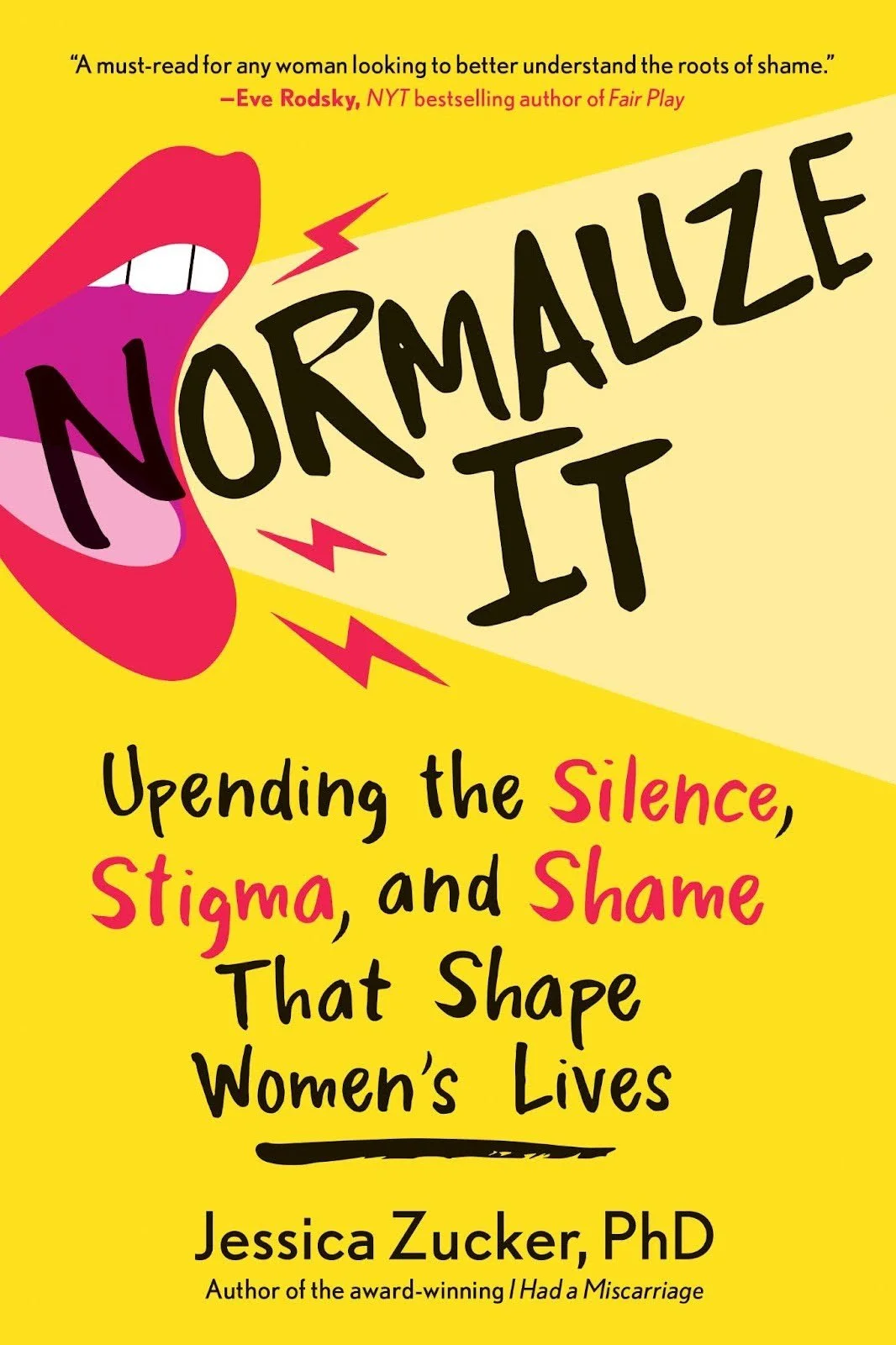Finding My Voice After Pregnancy Loss: A Full-Circle Conversation with Dr. Jessica Zucker
When I first discovered Dr. Jessica Zucker’s work, I was seven years out from my first miscarriage – still carrying layers of grief and shame I hadn’t yet remotely faced. I was newly married and quietly considering trying to get pregnant again and start my own family, yet still holding the ache of a story I hadn’t fully processed.
Her words found me in that in between space: heartbroken, hopeful, and unsure where to place all that love that had nowhere to go.
Her campaign, #IHadaMiscarriage, and her book were among the first things that made me feel truly seen. Through her words, I found permission to name what I had gone through and to begin untangling the shame I didn’t even realize I was carrying.
Just a few days ago, I took a deep dive into my social media archives and found an old reel — one I had posted right after finishing Jessica’s book and after first learning about Pregnancy and Infant Loss Awareness Day. It was the first time I had ever spoken about my loss. It felt terrifying and freeing all at once — like I had cracked open a door I didn’t know I was allowed to open.
That single act of speaking out loud created a portal for me. A small, but powerful thread of connection to women in my life I didn’t even realize had walked this path too.
Thank goodness it did, because just two months later, I suffered my second miscarriage. (You can read a little about that here.)
And now, here we are today! Sitting down with Jessica for this conversation feels surreal in the best way. If I had never picked up her book, who knows if The Doula Lif, or this community, would exist in the way it does now.
Having her join me on The Rainbow Connection this week feels deeply full-circle.
Breaking the Silence Around Loss
Dr. Jessica Zucker is a Los Angeles–based psychologist who specializes in reproductive and maternal mental health. Her groundbreaking #IHadaMiscarriage campaign began with a single photo — Jessica holding a sign with those three words. Behind that image was a story of her own second trimester loss and the realization that silence was feeding shame for so many women.
In our conversation, Jessica shared how her experience became the catalyst for a global movement — one that invites women to tell their stories and dissolve the shame that so often follows loss.
“The more we keep inside,” she said, “the more it morphs into shame. When we tell our stories—whether out loud or on the page—we give our pain somewhere to go.”
The Power of Storytelling
We talked about the cultural discomfort around grief — the way people rush to “fix” pain or offer silver linings instead of simply sitting beside it. Jessica reminded me that true support doesn’t come from perfect words, but from presence.
“Sometimes all someone needs to hear is: I’m here, and I’m not going anywhere.”
It’s something so simple, yet so profound. Even if we don’t have the perfect words, there’s power in honesty — in saying, I may not know what to say, but I love you and I’m here.
Trying, or simply showing up, can really be everything to someone who is grieving.
We also explored how early education could change the narrative around miscarriage and fertility — helping girls and women understand that loss is not rare, that pregnancy doesn’t always equal a baby in your arms, and that it’s never your fault.
1 in 4 pregnancies end in loss.
1 in 160 end in stillbirth.
1 in 7 couples struggle with infertility.
Sobering statistics, aren’t they? They are ones that made me pause and ask myself:
If I had known this earlier, would my first loss have shattered me as deeply as it did?
Would I have been more prepared, or at least feel less alone in it?
Jessica’s newest book, Normalize It, expands this conversation beyond loss — exploring all the silences women carry, from menstruation to menopause, and what it would mean to bring them into the light.
It begs the question: how much of the shame and the load women carry could be lessened if we simply began to speak the truth?
A Gentle Invitation
This conversation left me reflecting on the many ways we process our stories of loss.. Whether they be quietly, publicly, or somewhere in between. There’s no single “right” way to grieve, and no timeline that defines “healing.” (something we talk about at The Doula Life every day!)
Maybe for you, it looks like writing your story in a journal and letting it live outside your body for a while.
Maybe it’s speaking your baby’s name out loud, sharing a piece of your story on social media, or even coming on The Rainbow Connection to use your voice in community.
However you choose to do it… your story matters.
If you’d like a gentle way to begin, I’ve created a free guide called Storytelling Through Loss — a set of journal prompts to help you process your story in your own words and at your own pace.
And if you feel called, I’d love to hear from you below:
How are you processing your own story of loss right now?
Are you finding ways to move it through your body, to speak it, or to write it down?
When we tell our stories, shame loses its power — and connection begins. “Shame dies when our stories are told in safe places.”
Where or who has been your safe place?
Listen to the full episode with Dr. Jessica Zucker:
Explore more resources:
🌈 The Haven – Pregnancy After Loss Support Program
💛 Mother Like No Other – TTC After Loss Community
📸 Follow on Instagram: @the.doula.life | @therainbowconnectionpodcast


